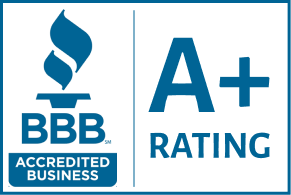As a business law attorney in San Diego, people come to me quite often for advice about how to start a company. Starting a company is an exciting endeavor, but there are a number of things you need to do from a legal perspective to get it off the ground.
Here are the top legal issues you face before starting a company. Some of them are rather critical and may require further guidance from a corporate lawyer.
1. Identify your legal entity.
There are a number of entities out there, including:
- “S” corporations
- “C” corporations
- limited liability partnerships
- general partnerships
The most common entities general entrepreneurs focus on are “S” corporations, “C” corporations and limited liability companies (LLC) as they provide the best mix of protection against liability and a known body of law around how they function.
A couple other side notes about legal entities:
- LLCs are tax efficient also, but structuring them is complicated.
- Many investors prefer to invest in “C” corporations because they are better understood and have a robust structure, e.g., you can IPO a “C” corporation.
2. Know where to incorporate.
You can incorporate your company in the state of California, or in a state such as Delaware, which makes a business out of serving as a jurisdiction of incorporation for many companies.
Many public companies tend to be incorporated in Delaware. Accordingly, Delaware corporations come with a certain prestige. In addition, Delaware offers an administrative framework and well-defined corporate laws that tend to favor management by offering flexibility in governing a company and a wide scope of potential indemnification against liability for officers and directors. However, if you incorporate in Delaware, but your company is “doing business” in another state then you will have to “qualify” to do business in that state also.
3. Protect intellectual property.
Intellectual property is the bread and butter of many businesses. You will want to protect any patents, trademarks, copyrights, domain names, trade secrets, etc. to ensure the value of your business remains strong.
From the beginning of your company, every employee, consultant and advisor should sign an agreement which assigns the intellectual property that they develop to the company. Investors and acquirers will demand to see these agreements to confirm that all relevant intellectual property is owned by the company.
Finally, be mindful about contracts. They are crucial to documenting every one of your business relationships. Write out and present a clear definition of obligations, rights and assumptions that can help you and others understand what will happen in the event that certain contingencies or conditions arise. Consult with a San Diego corporate attorney prior to negotiating or entering into any business relationship.
- Who Is at Fault in a Motorcycle Lane Splitting Accident in California? - August 26, 2024
- Are Dogs Attacking Without Warning or Are We Misinterpreting Key Signals? - March 4, 2024
- Can You Sue If No One Witnessed Your Slip and Fall Injury? - February 10, 2024












